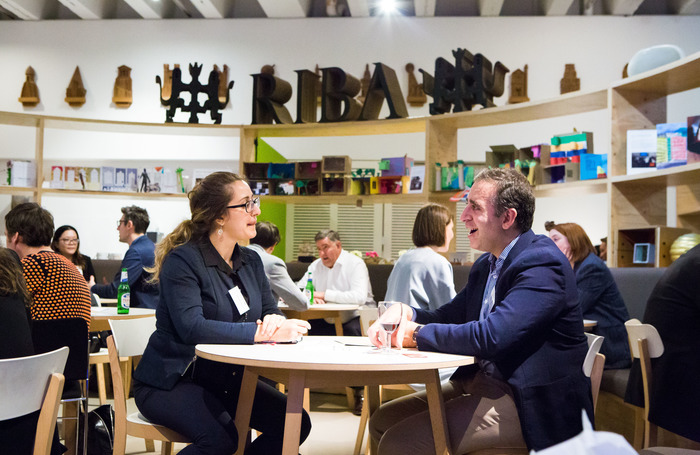MIPIM has received damaging criticism in recent years. The inappropriate behaviour of some delegates, a lack of diversity, a sexist atmosphere at some events, and a predominantly male attendee and speaker list are some of the charges that it has faced.
Yet it remains one of the biggest annual events in the property sector. It is still clearly seen as an essential networking resource by practices. Many attendees this year reported signs that its culture may even be changing, albeit slowly.
Francesca Pintus attended for the first time this year, as part of a six-strong delegation from London-based HOK. She found MIPIM to be a great platform for targeting people you want to meet, and for finally catching up with contacts that she had never met face-to-face.
"Designers spend a lot a time remotely showing people images and can lose sight of the benefits of meeting in person," she points out. "There is a value in face-to-face meetings that video conferencing cannot match."
Pintus can see the worth in returning each year to build up your network, as long as you are prepared to talk to people for up to 12 hours a day. "There is some advantage to be able to say, 'Meet you at MIPIM'," she admits.
It was the second time for Sasha Bhavan of smaller practice Knox Bhavan. "Don’t go imagining that you are going to get the next big job," she counsels.
"It is more about making connections and affirming links, and getting to know people in a more relaxing environment. We do target people, but it’s hard if you are a small- or medium-sized practice."

Newcomers soon realise that all those talked-about parties are not open to everyone, and small practices will need a good prior connection to attend.
Knox Bhavan met a QS and two contractors last year that they have since worked with, and they returned from this year’s event with some contacts that might lead to jobs which they are now making time to follow up.
Bhavan’s advice to anyone considering MIPIM is to do as much preparation as possible in advance. It is all too easy to concentrate on getting work done and out of the way beforehand, and not to plan what you want to get out of a large networking event.
She advises against overcommitting to hundreds of meetings, leaving no time to be reactive to any unplanned conversations that might arise.
Bhavan did notice a difference at this year’s MIPIM: an encouraging increase in the number of women speakers. In her first year there she was shocked at how MIPIM had appeared to be nothing more than "men in black suits".
Francesca Pintus also found this year’s event to be a little better from a diversity point of view than she had anticipated. "Women had a big presence on discussion panels; and one I went to that didn't gave an apology for not having a woman on the panel," she notes. "But there was still no significant racial diversity to be seen."
She adds that where diversity was to be found, it was generally among the architects present. Engineers were notably less diverse, while Pintus observed that the vast majority of developers and investors present were men. She herself was one of two women in HOK’s team of six, which also included the Chair of the Architects for Change group, Femi Oresanya.
UK public sector agencies were much in evidence at this year’s MIPIM. Nick Walkley, CEO of Homes England, which shared the government’s marquee there, says the event is a stark reminder that parts of the industry have not kept pace with equality and diversity.
He makes no bones about the property industry’s need to learn from partners that operate from a clear set of values and are ambitious on equality and diversity.
Local and combined authorities are streets ahead when it comes to the diversity of their teams, he argues. Private sector partners need to understand those values or else partnerships will flounder.
"Diversity is proven to lead to better decision-making, so in Homes England we have a real imperative to improve our own diversity to deliver our strategy," Walkley states. "We’re looking to others in the industry to show similar ambition."
Thanks to Francesca Pintus, Associate, HOK; Sasha Bhavan, Founding Partner, Knox Bhavan; Nick Walkley, Chief Executive Officer, Homes England.
Text by Neal Morris. This is a Professional Feature edited by the RIBA Practice team. Send us your feedback and ideas
RIBA Core Curriculum Topic: Business, clients and services.
As part of the flexible RIBA CPD programme, Professional Features count as microlearning. See further information on the updated RIBA CPD Core Curriculum and on fulfilling your CPD requirements as an RIBA Chartered Member.
Posted on 28 March 2019.









